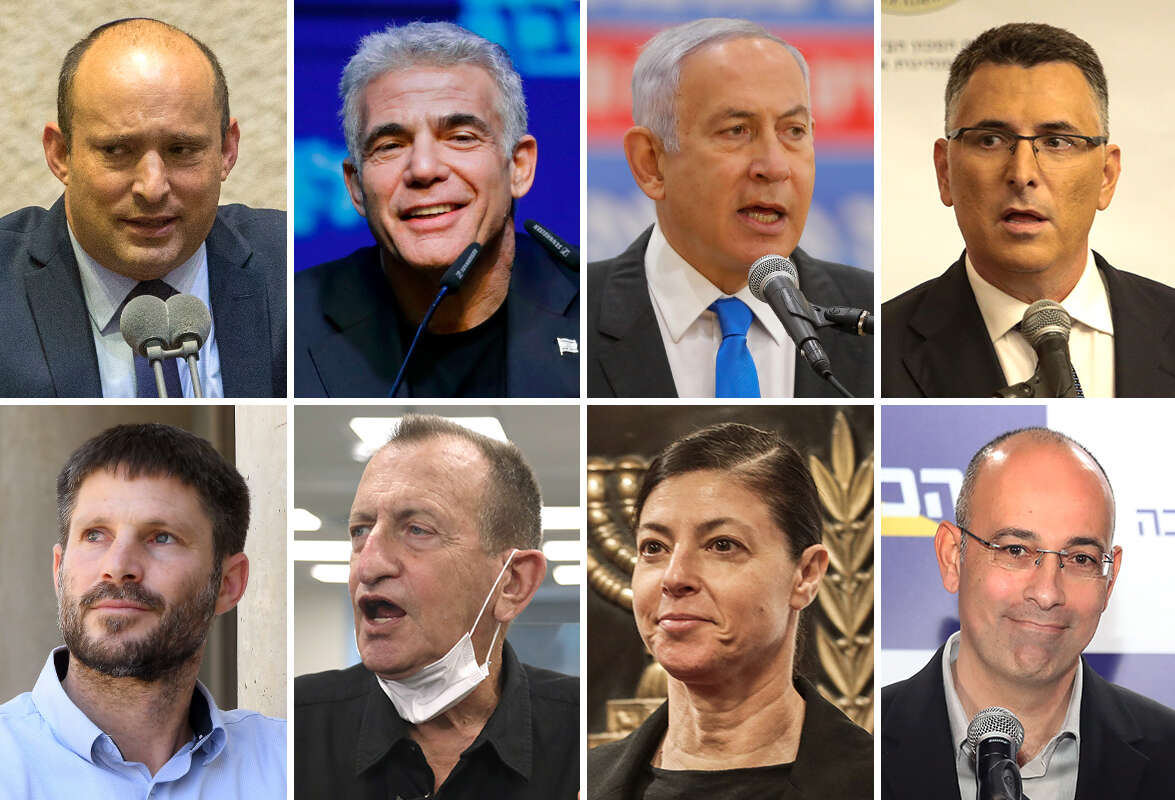With only two days left before parties seeking to contend in the March 23 elections must present the Central Election Committee with their final slates, Israel's smaller political players are scrambling to cobble together alliances that would ensure they get a foothold in parliament.
Follow Israel Hayom on Facebook and Twitter
By law, a political party must secure 3.25% of the votes or four seats, to cross the electoral threshold.
Polls have consistently projected that the smaller factions, including the Religious Zionist, Habayit Hayehudi, Tnufa, Pensioners, and Gesher parties will fail to be elected to the Knesset. The Economist and Israelis factions, affiliated with the Center-Left seemed to scape by at first, but have now fallen below the electoral threshold.
The far-right Otzma Yehudit party, which on Sunday announced it has joined forces with the radical ultra-Orthodox faction Noam, fails to enter parliament, as well.
Poor performance in the polls has already seen two parties – Telem and the Pensioners party – pull out of the race.

So far, Labor is the only party that has been able to show an electoral turnaround. After weeks of polls predicting its demise, newly elected Labor leader MK Merav Michaeli is now projected to secure 6-8 seats.
The national-religious camp seems to be facing the hardest predicament, as the moderate Habayit Hayehudi seems hesitant to partner with the hawkish Religious Zionist Party and utterly reluctant to join forces with Otzma Yehudit.
Habayit Hayehudi was negotiating with Yamina but to no avail.
Prime Minister Benjamin Netanyahu has been reportedly pushing for a merger between the Religious Zionist Party and Otzma Yehudit, but Religious Zionist Party leader Betzalel Smotrich, too, is reluctant to partner with Otzma Yehudit leader Itamar Ben-Gvir.
Habayit Hayehudi leader Hagit Moshe has been trying to negotiate a shared leadership deal with Smotrich, but so far, he has refused to name her anything but his second.
Ben-Gvir on Tuesday accused Smotrich and Moshe of letting personal considerations get in the way of the "more pressing mission of perverting a leftist government from taking power."
"This is not about professional disagreements. Not one poll shows them [Habayit Hayehudi and the Religious Zionist Party) crossing the electoral threshold. If Smotrich could get into the Knesset without one I would be silent – but he can't. He can do that only if we join forces."
Over on the Left, the smaller factions are said to be eyeing potential mergers with Labor, but party leader Michaeli is reluctant to shuffle her slate, especially when all polls predict a merger with one of the new political players – the Israelis, Economic and Tnufa factions – will not significantly augment Labor's power in the Knesset.
Israelis party leader, popular Tel Aviv Mayor Ron Huldai may have started off strong with a projected nine seats, but has since crashed. The last three polls by Israel's Channel 12 and Channel 13 outlets predicted Huldai's election run would fail.
Sources in the Israelis party said Tuesday that Huldai has reached out to Blue and White for a potential merger. The latter, which emerged as a political force during the 2019 and 2020 election campaigns, has plummeted in the polls and is now projected to win five mandates at best.
Most polls show Blue and White teetering on the brink of the electoral threshold. The party is something of a political pariah in Center-Left circles over the fact that it joined the Likud-led coalition following the September 2020 elections – in a stark breach of its main campaign promise.
As of Wednesday morning, party insiders told Israel Hayom that given his inability to find a suitable merger, Huldai was "seriously considering" dropping out of the national elections.
So far, the only party on the Center-Left to refuse any mergers is Yesh Atid. With a projected 16 seats, Yesh Atid is positioned to be the second-largest party in the Knesset. However, it could benefit from mergers on the Left: it would cement its position as a centrist party, giving it a further boost in the polls.
Also on Wednesday, the Joint Arab List was rattled when MK Mansour Abbas announced that his Ra'am party will split with the alliance of the Arab parties in favor of an independent Knesset bid.
The Joint Arab List's ticket will now comprise the Balad, Ta'al, and Hadash parties.
Mansour had a falling out with other JAL members over his rapprochement with Prime Minister Benjamin Netanyahu. Recent polls, however, project that an independent Knesset run will see Ra'am fail to cross the four-seat electoral threshold.
Subscribe to Israel Hayom's daily newsletter and never miss our top stories!




